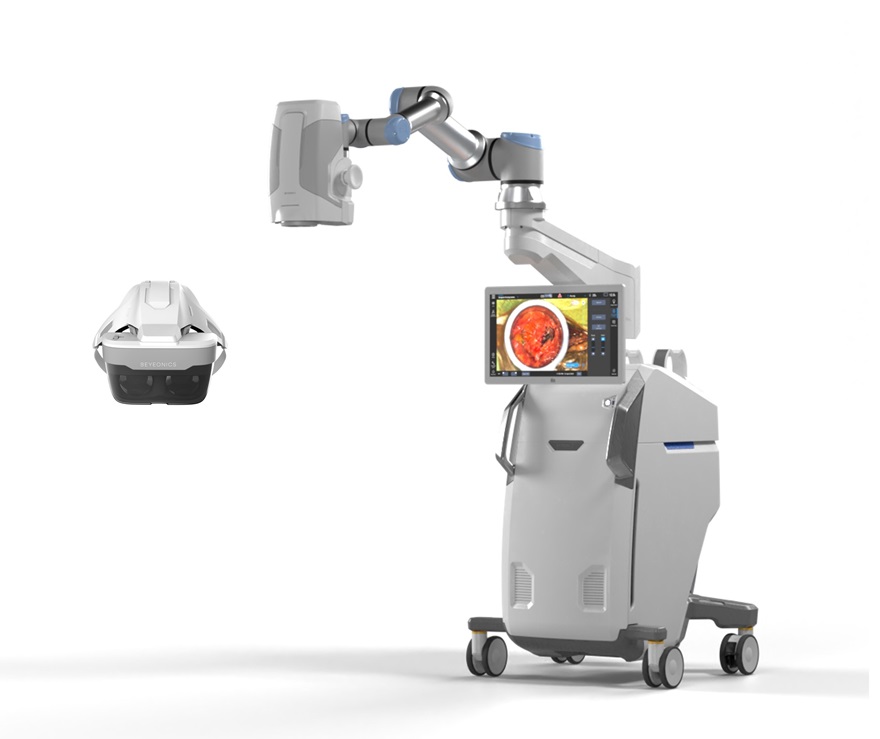Electrical Implants Help Alleviate Arthritis Pain
|
By HospiMedica International staff writers Posted on 14 Jan 2015 |
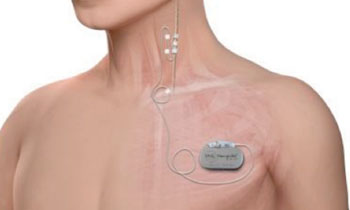
Image: Implanted Cyberonics VNS neurostimulator (Photo courtesy of Cyberonics).
Rheumatoid arthritis (RA) sufferers may soon benefit from embedded electrical implants that stimulate the vagus nerve to significantly reduce joint pain.
Developed by researchers at the Academic Medical Center (AMC; Amsterdam, The Netherlands) and GlaxoSmithKline (Brentford, United Kingdom), the implant is a small neurostimulation device implanted under the skin that sends electrical signals to electrodes surgically inserted into the neck adjacent to the vagus nerve. According to the researchers, the stimulation results in activation of acetylcholine receptor type 7 (α7nAChR) in the spleen, a receptor intimately involved in the cholinergic anti-inflammatory pathway (CAP).
The researchers studied the effects of α7nAChR activation in an animal model of RA, and showed that the stimulation of the CAP by vagus nerve stimulation improved experimental RA. Conversely, they also found an aggravation of arthritis activity after unilateral cervical vagotomy, as well as in mice with α7nAChR-knockout, in which they observed an increased production of mediators of inflammation and degradation. The study was published on November 20, 2014, in Best Practice and Research in Clinical Rheumatology.
“Even in patients who have failed everything, including the most modern pharmaceuticals, we have seen a clear trend of improvement,” said lead author Prof. Paul-Peter Tak, MD, PhD, in an interview with Sky News. “We may be able to achieve remission in 20%–30% of patients, which would be a huge step forward in the treatment of rheumatoid arthritis. It is very appealing to patients because they do not want to take medicines for 30 to 40 years. It’s also restoring the natural balance in the body.”
Because the vagus nerve is associated with many different functions and brain regions, research is being done to determine its usefulness in treating other illnesses as well, including various anxiety disorders, Alzheimer's disease, migraines, fibromyalgia, obesity, and tinnitus. For the study, the researchers used the Cyberonics (Houston, TX, USA) VNS system, originally developed for the treatment of epilepsy, which consists of a titanium-encased generator with a lithium battery to fuel the generator, a lead wire system with electrodes, and an anchor tether to secure the leads to the vagus nerve.
Related Links:
Academic Medical Center
GlaxoSmithKline
Cyberonics
Developed by researchers at the Academic Medical Center (AMC; Amsterdam, The Netherlands) and GlaxoSmithKline (Brentford, United Kingdom), the implant is a small neurostimulation device implanted under the skin that sends electrical signals to electrodes surgically inserted into the neck adjacent to the vagus nerve. According to the researchers, the stimulation results in activation of acetylcholine receptor type 7 (α7nAChR) in the spleen, a receptor intimately involved in the cholinergic anti-inflammatory pathway (CAP).
The researchers studied the effects of α7nAChR activation in an animal model of RA, and showed that the stimulation of the CAP by vagus nerve stimulation improved experimental RA. Conversely, they also found an aggravation of arthritis activity after unilateral cervical vagotomy, as well as in mice with α7nAChR-knockout, in which they observed an increased production of mediators of inflammation and degradation. The study was published on November 20, 2014, in Best Practice and Research in Clinical Rheumatology.
“Even in patients who have failed everything, including the most modern pharmaceuticals, we have seen a clear trend of improvement,” said lead author Prof. Paul-Peter Tak, MD, PhD, in an interview with Sky News. “We may be able to achieve remission in 20%–30% of patients, which would be a huge step forward in the treatment of rheumatoid arthritis. It is very appealing to patients because they do not want to take medicines for 30 to 40 years. It’s also restoring the natural balance in the body.”
Because the vagus nerve is associated with many different functions and brain regions, research is being done to determine its usefulness in treating other illnesses as well, including various anxiety disorders, Alzheimer's disease, migraines, fibromyalgia, obesity, and tinnitus. For the study, the researchers used the Cyberonics (Houston, TX, USA) VNS system, originally developed for the treatment of epilepsy, which consists of a titanium-encased generator with a lithium battery to fuel the generator, a lead wire system with electrodes, and an anchor tether to secure the leads to the vagus nerve.
Related Links:
Academic Medical Center
GlaxoSmithKline
Cyberonics
Latest Critical Care News
- AI Doubles Medical Professionals’ Accuracy in Reading EEG Charts of ICU Patients
- Flexible Device Enables Sweat Gland Stimulation and Simultaneous Biosensing
- WHO Publishes First Global Guidelines to Reduce Bloodstream Infections from Catheter Use
- Innovative Material Paves Way for Next-Generation Wearable Devices
- Wireless Electronic Suture Enables Postoperative Long-Term Monitoring Of Soft Tissue
- Transcatheter Valve Replacement Outcomes Similar To Surgery, Finds Study
- Revascularization Improves Life Quality in Chronic Limb-Threatening Ischemia, Finds Study
- Powerful AI Risk Assessment Tool Predicts Outcomes in Heart Failure Patients
- Peptide-Based Hydrogels Repair Damaged Organs and Tissues On-The-Spot
- One-Hour Endoscopic Procedure Could Eliminate Need for Insulin for Type 2 Diabetes
- AI Can Prioritize Emergency Department Patients Requiring Urgent Treatment
- AI to Improve Diagnosis of Atrial Fibrillation
- Stretchable Microneedles to Help In Accurate Tracking of Abnormalities and Identifying Rapid Treatment
- Machine Learning Tool Identifies Rare, Undiagnosed Immune Disorders from Patient EHRs
- On-Skin Wearable Bioelectronic Device Paves Way for Intelligent Implants
- First-Of-Its-Kind Dissolvable Stent to Improve Outcomes for Patients with Severe PAD
Channels
Artificial Intelligence
view channel
AI-Powered Algorithm to Revolutionize Detection of Atrial Fibrillation
Atrial fibrillation (AFib), a condition characterized by an irregular and often rapid heart rate, is linked to increased risks of stroke and heart failure. This is because the irregular heartbeat in AFib... Read more
AI Diagnostic Tool Accurately Detects Valvular Disorders Often Missed by Doctors
Doctors generally use stethoscopes to listen for the characteristic lub-dub sounds made by heart valves opening and closing. They also listen for less prominent sounds that indicate problems with these valves.... Read moreSurgical Techniques
view channel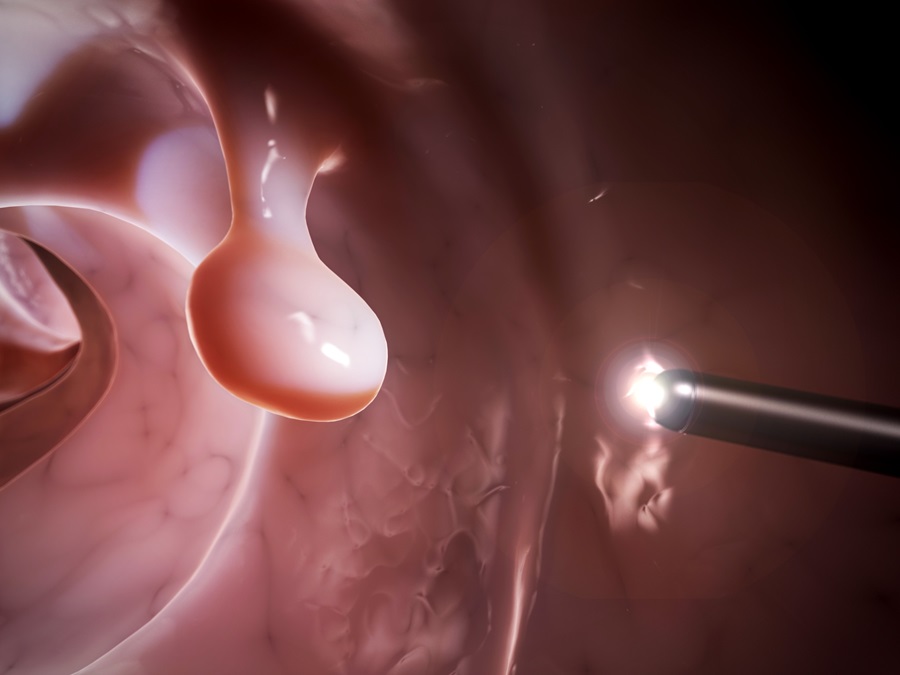
Study Warns Against Dangerous Smoke Levels Produced During Endoscopic Gastrointestinal Procedures
Healthcare professionals involved in certain smoke-generating endoscopic gastrointestinal procedures, such as those using electrical current to excise polyps, may be exposed to toxin levels comparable... Read more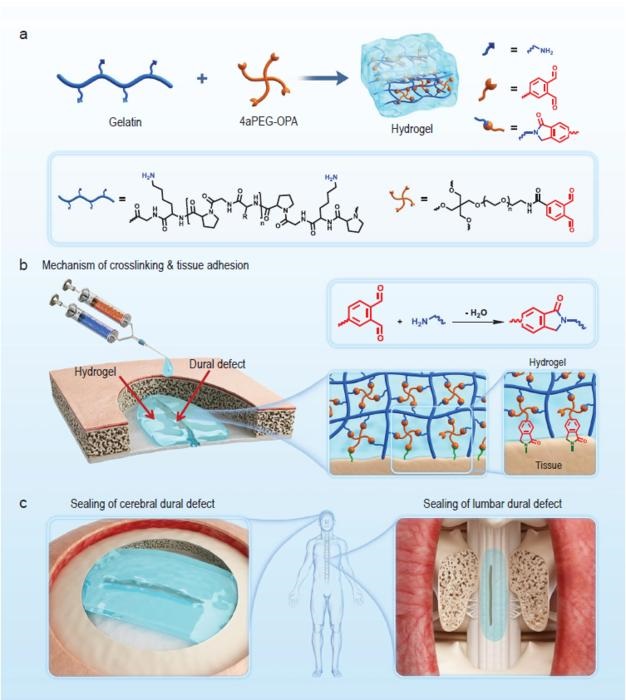
New Hydrogel Sealant Effective at Sealing Dural Defects and Preventing Postoperative Adhesion
The dura mater is a fibrous membrane of connective tissue that envelops the brain and spinal cord. In neurosurgical procedures that require access to the brain or spinal cord, opening the dura mater often... Read more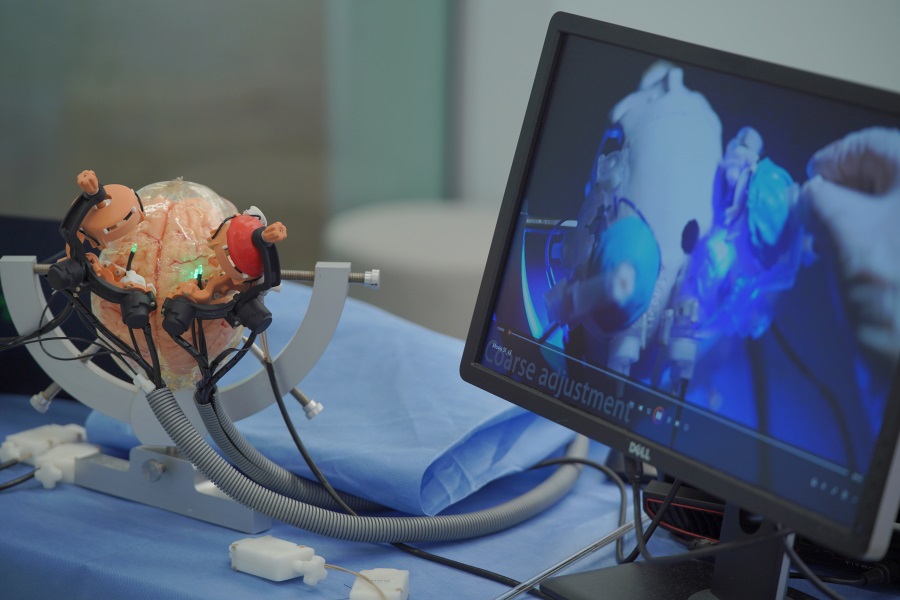
MRI-Guided Multi-Stage Robotic Positioner Enhances Stereotactic Neurosurgery Precision
Magnetic resonance imaging (MRI) offers significant benefits in neurosurgery, providing detailed 3D visualizations of neurovascular structures and tumors. Traditionally, its use has been restricted to... Read morePatient Care
view channelFirst-Of-Its-Kind Portable Germicidal Light Technology Disinfects High-Touch Clinical Surfaces in Seconds
Reducing healthcare-acquired infections (HAIs) remains a pressing issue within global healthcare systems. In the United States alone, 1.7 million patients contract HAIs annually, leading to approximately... Read more
Surgical Capacity Optimization Solution Helps Hospitals Boost OR Utilization
An innovative solution has the capability to transform surgical capacity utilization by targeting the root cause of surgical block time inefficiencies. Fujitsu Limited’s (Tokyo, Japan) Surgical Capacity... Read more
Game-Changing Innovation in Surgical Instrument Sterilization Significantly Improves OR Throughput
A groundbreaking innovation enables hospitals to significantly improve instrument processing time and throughput in operating rooms (ORs) and sterile processing departments. Turbett Surgical, Inc.... Read moreHealth IT
view channel
Machine Learning Model Improves Mortality Risk Prediction for Cardiac Surgery Patients
Machine learning algorithms have been deployed to create predictive models in various medical fields, with some demonstrating improved outcomes compared to their standard-of-care counterparts.... Read more
Strategic Collaboration to Develop and Integrate Generative AI into Healthcare
Top industry experts have underscored the immediate requirement for healthcare systems and hospitals to respond to severe cost and margin pressures. Close to half of U.S. hospitals ended 2022 in the red... Read more
AI-Enabled Operating Rooms Solution Helps Hospitals Maximize Utilization and Unlock Capacity
For healthcare organizations, optimizing operating room (OR) utilization during prime time hours is a complex challenge. Surgeons and clinics face difficulties in finding available slots for booking cases,... Read more
AI Predicts Pancreatic Cancer Three Years before Diagnosis from Patients’ Medical Records
Screening for common cancers like breast, cervix, and prostate cancer relies on relatively simple and highly effective techniques, such as mammograms, Pap smears, and blood tests. These methods have revolutionized... Read morePoint of Care
view channel
POCT for Infectious Diseases Delivers Laboratory Equivalent Pathology Results
On-site pathology tests for infectious diseases in rural and remote locations can achieve the same level of reliability and accuracy as those conducted in hospital laboratories, a recent study suggests.... Read more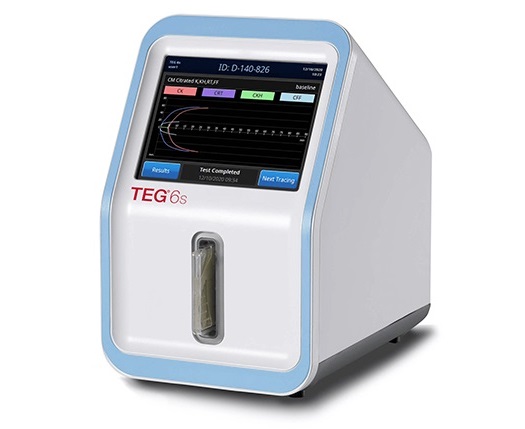
Cartridge-Based Hemostasis Analyzer System Enables Faster Coagulation Testing
Quickly assessing a patient's total hemostasis status can be critical to influencing clinical outcomes and using blood products. Haemonetics Corporation (Boston, MA, USA) has now obtained 510(k) clearance... Read more
Critical Bleeding Management System to Help Hospitals Further Standardize Viscoelastic Testing
Surgical procedures are often accompanied by significant blood loss and the subsequent high likelihood of the need for allogeneic blood transfusions. These transfusions, while critical, are linked to various... Read moreBusiness
view channel
MEDICA INNOVATION FORUM for the Healthcare Innovations of the Future
By always offering innovations and updating existing program formats, the internationally leading medical trade fair MEDICA in Düsseldorf has been successful for over half a century and always gives its... Read more












